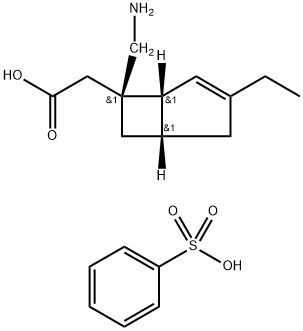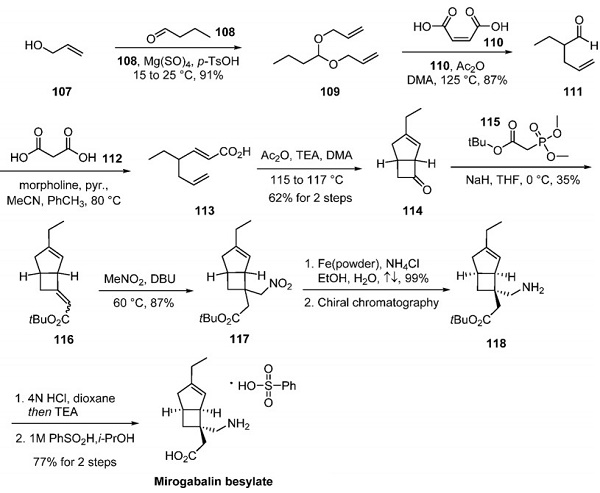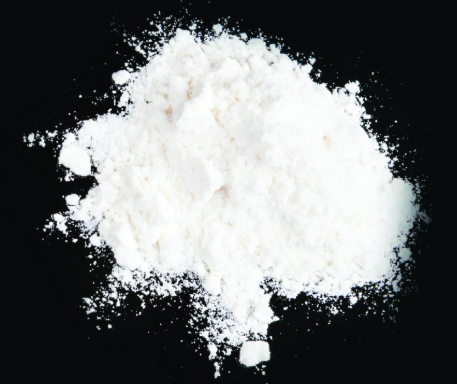Mirogabalin besylate:Indications, Advantages,Mechnaism of action and Side effects
Mirogabalin besylate was first approved in Japan in 2019 for the treatment of peripheral neuropathic pain, and its indication was recently extended to include the treatment of central neuropathic pain. The drug is commonly administered as conventional oral tablets and has been shown to be effective and well tolerated.
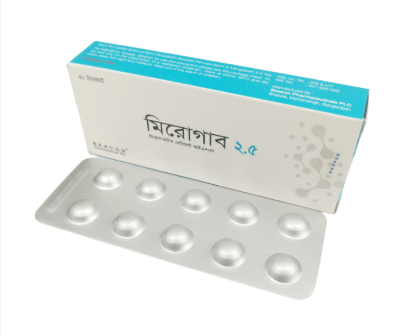
Indications
Mirogabalin besylate is indicated for patients with peripheral neuropathic pain and central neuropathic pain after spinal cord injury and stroke, many of whom are elderly. Such patients often have dysphagia, making swallowing conventional film-coated tablets difficult, which can contribute to reduced treatment adherence. Orally disintegrating tablets (ODTs) are a formulation that disintegrates readily in the mouth and are thus more easily administered than conventional tablets, which must be swallowed whole with water. Thus, ODTs are a useful formulation for both patients who require nursing care and those with limited activities of daily life8 and may improve adherence.
Advantages
Mirogabalin besylate has a potent pain-modulating effect with a unique high affinity and prolonged dissociation rate for the a2delta-1 subunit of voltage-gated calcium (Ca2+) channels (VGCCs) on the dorsal root ganglion resulting in more sustained analgesia compared with traditional gabapentinoids. Additionally, mirogabalin has a superior adverse events (AEs) profile due to a rapid dissociation from the a2delta-2 subunit of VGCCs potentially implicated in central nervous system-specific AEs.1
Mechnaism of action
Mirogabalin besylate selectively and potently binds to the α2δ subunit of voltage-gated calcium channels. When mirogabalin is bound, the influx of calcium ions to the presynaptic terminal is reduced, thereby inhibiting the release of excitatory neurotransmitters and providing analgesic effects.
Side effects
The most common AEs for mirogabalin besylate are dizziness (approximately 8-16%), somnolence (approximately 6-24%) and headache (approximately 6-14%), with a lower incidence of constipation, nausea, diarrhea, vomiting, edema, fatigue and weight gain. Postmarketing studies are required to evaluate its analgesic durability and efficacy when combined with other antineuropathic agents such as tricyclics, duloxetine and tramadol/tapentadol.
References
1.Kato J, Inoue T, Yokoyama M, Kuroha M. A review of a new voltage-gated Ca2+ channel α2δ ligand, mirogabalin, for the treatment of peripheral neuropathic pain. Expert Opin Pharmacother. 2021; 22(17): 2311-2322.
Related articles And Qustion
Lastest Price from Mirogabalin besylate manufacturers
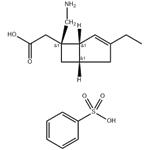
US $0.00/kg2025-11-05
- CAS:
- 1138245-21-2
- Min. Order:
- 1kg
- Purity:
- 0.99
- Supply Ability:
- 1

US $0.00/KG2025-09-01
- CAS:
- 1138245-21-2
- Min. Order:
- 0.10000000149011612KG
- Purity:
- 0.99
- Supply Ability:
- 100KGS
